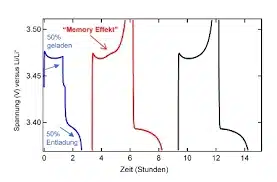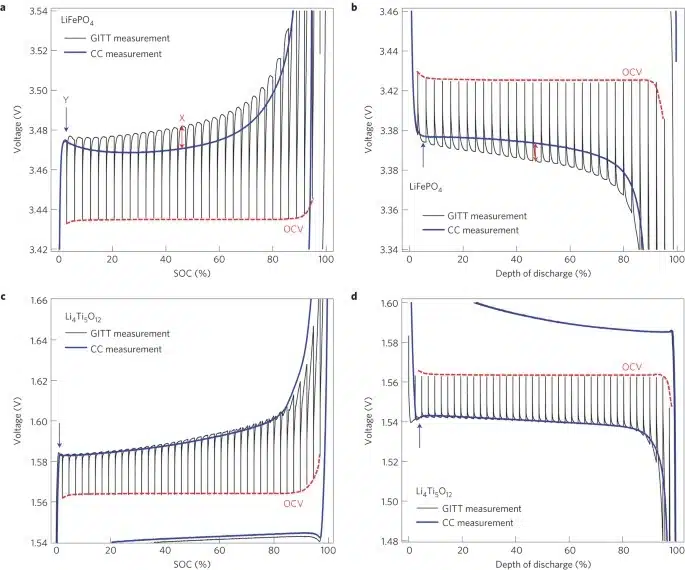As a battery industry expert, I am often asked: Do lithium batteries still need to be maintained by “full charge and discharge” like old batteries? Today, we will uncover the truth about the memory effect of lithium batteries and tell you how to use lithium batteries correctly to extend their service life.
Last updated: May 2025 | Estimated reading time: 8 minutes
Table of Contents
ToggleWhat is battery memory effect?
Battery memory effect refers to the phenomenon that the battery capacity of certain types of batteries (mainly nickel-cadmium batteries) will decrease after being charged for a long period without being fully discharged. The battery seems to “remember” the shorter discharge cycle and has difficulty in fully discharging it. This results in a reduction in the battery’s usable capacity.

Do lithium batteries have a memory effect?
The answer is: almost nothing. Lithium batteries have very different chemistry than NiCad batteries. Modern lithium-ion and lithium-polymer batteries have virtually no memory effect. This means you don’t need to fully discharge a lithium battery every time before recharging it.
Do lithium batteries need to be activated?
While lithium batteries do not have a memory effect, all batteries (including lithium batteries) will degrade over time. This is primarily due to the following reasons:
- Battery aging: The chemicals inside lithium batteries break down over time, causing increased internal resistance and decreased capacity.
- Number of charge and discharge cycles: Each charge and discharge cycle will cause slight damage to the battery. Lithium batteries usually have a charge and discharge cycle life of hundreds to thousands of times.
- High temperature: It will accelerate the aging process of the battery.
- Improper charging habits: For example, keeping the battery at 100% or 0% charge for a long time will accelerate the battery degradation.
Comparison table of memory effects of different battery types:
| Battery Type | Susceptible to Memory Effect | Severity | Mitigation |
|---|---|---|---|
| Nickel-Cadmium (NiCd) | Yes | High | Full discharge and charge cycles |
| Nickel-Metal Hydride (NiMH) | Yes | Moderate | Occasional full discharge |
| Lithium-Ion (Li-Ion) | Rare | Low | Proper charging habits |
| Lead-Acid | Yes | Low | Equalization charge |
| Alkaline | No | None | N/A |
How to prevent battery memory effect
Although lithium batteries have no memory effect, there are some things we can do to extend their lifespan:
- Avoid full discharge: Try to avoid draining the battery to 0%. It is best to start charging when the battery is below 20%.
- Avoid fully charging for a long time: After fully charging, try to unplug the charger in time. Keeping the battery at 100% power for a long time will accelerate battery aging.
- Avoid high temperature environments: Try to avoid using or storing electronic devices in high temperature environments.
- Use the original charger: It can be provided by the device manufacturer, or a third-party charger of reliable quality.
- Perform shallow cycle charge and discharge regularly: Every once in a while (for example, 3 months), you can discharge the battery to about 20% and then fully charge it. This helps calibrate the battery management system so that it can display the power more accurately.
- Long-term storage: If you do not use a lithium battery device for a long time, it is best to charge it to about 50% and then store it in a cool and dry place.
Why do lithium batteries nowadays seem less durable than before?

Many people feel that today’s lithium batteries are not as durable as before. This may be caused by the following reasons:
Usage habits: With the popularity of smartphones and tablets, our frequency of using electronic devices has greatly increased, resulting in an increase in the number of battery charge and discharge cycles.
Software Updates: Some software updates may increase the power consumption of your device and reduce battery life.
Battery aging: Batteries themselves age over time, resulting in a decrease in capacity.
User expectations: As technology advances, our expectations for battery life also increase.
Conclusion
Lithium batteries have almost no memory effect. Through correct charging and usage habits, we can effectively extend the life of lithium batteries. Remember, avoiding full discharge, avoiding long-term full charging, and avoiding high temperature environments are the key to keeping lithium batteries healthy. If you still have doubts, you can consult us directly.
FAQs
No, lithium batteries do not need to be fully discharged to prevent memory effect. In fact, it's better to avoid fully discharging them.
Lithium batteries do not suffer from the memory effect, so this is not a concern.
The "pseudo-memory effect" can sometimes be addressed by performing a full charge and discharge cycle to recalibrate the battery's monitoring system.
